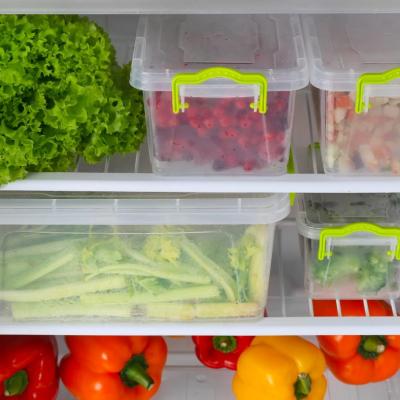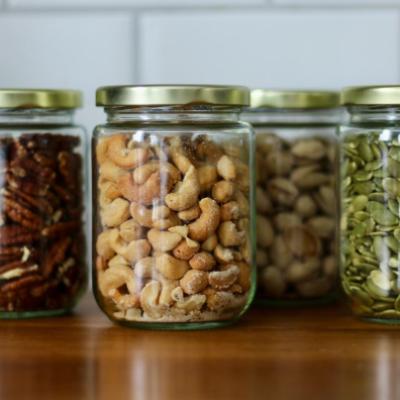According to a 2021 Australian study*, food waste costs Australia $36.6 billion dollars annually, equating to a cost of around $2,500 each year for individual families! Ouch! One way to reduce your food waste, hip pocket costs, and keep healthy, is to extend the life of your fruit, veg and other pantry staples by keeping them fresh for longer. We’ve put together our five top tips, below, for keeping your food fresh and your costs down.
1. Keep it tight
Storing certain fruits and vegetables such as carrots and cucumbers in airtight containers, or in plastic bags in the fridge, can significantly extend their shelf life. The container or plastic bag acts as a barrier between your food and environmental factors such as oxygen and humidity that contribute to food spoilage. Condensation can make your food go slimy and spoil quicker. Tips to help with this include storing your food in containers with a ridge base to help keep moisture away from the food and lining the bottom of your containers with paper towel. Just remember to replace the paper towel regularly!
2. Room to breathe
Don’t over pack your containers or bags. When a container is too full it can cause damage to the produce, leaving it exposed to micro-organisms that can cause it to go off or grow mould. Overcrowding also captures condensation which can settle on the fruit/vegetables making them slimy, hastening spoilage.
3. Keep them separated
Fruit and veg such as apples, ripe bananas, pears, peaches and melons produce relatively high levels of ethylene – a gas that hastens the ripening process. Other fruits and vegetables such as broccoli, asparagus, carrots and cucumber are sensitive to ethylene, and can ripen and spoil faster if stored with the ethylene producers. Keep apples, pears and melons in the fridge crisper and away from vegetables like broccoli, carrot and asparagus which can be stored in airtight containers in a separate section of the fridge.
4. Just add water
How do you stop your pre-cut, snack-ready fruit and veg from drying out, going wrinkly or turning brown before you get a chance to eat it? Just add water! Pop your cut carrots, or celery in a liquid tight container and fill with water until the veg is covered. This stops the oxidization process and keeps your veg in tip top condition. Store your cut veg in the refrigerator and remember to change the water every second day.
5. Keep nuts cool
Extend the life of your walnuts, almonds, pistachios, and pecans etc. by storing them in the fridge. The unsaturated fats in nuts can break down and spoil quite quickly, so to slow the process, store them in an airtight container or glass jar in the refrigerator. Nuts should stay nice and fresh for around four months. Remember to bring them back to room temperature before eating for the best flavour experience.
6. BONUS TIP! Check your fridge temp
Your fridge should stay under 5°C, with 3°C being recommended as the best temperature for power usage and food safety purposes. Checking the temperature regularly is important too, as environmental factors such as the change of season can affect the temperature inside your fridge. Your freezer should be set at -18°C for the best results.
References
*National Food Waste Strategy Feasibility Study 2021 (The Food and Agribusiness Growth Centre),

